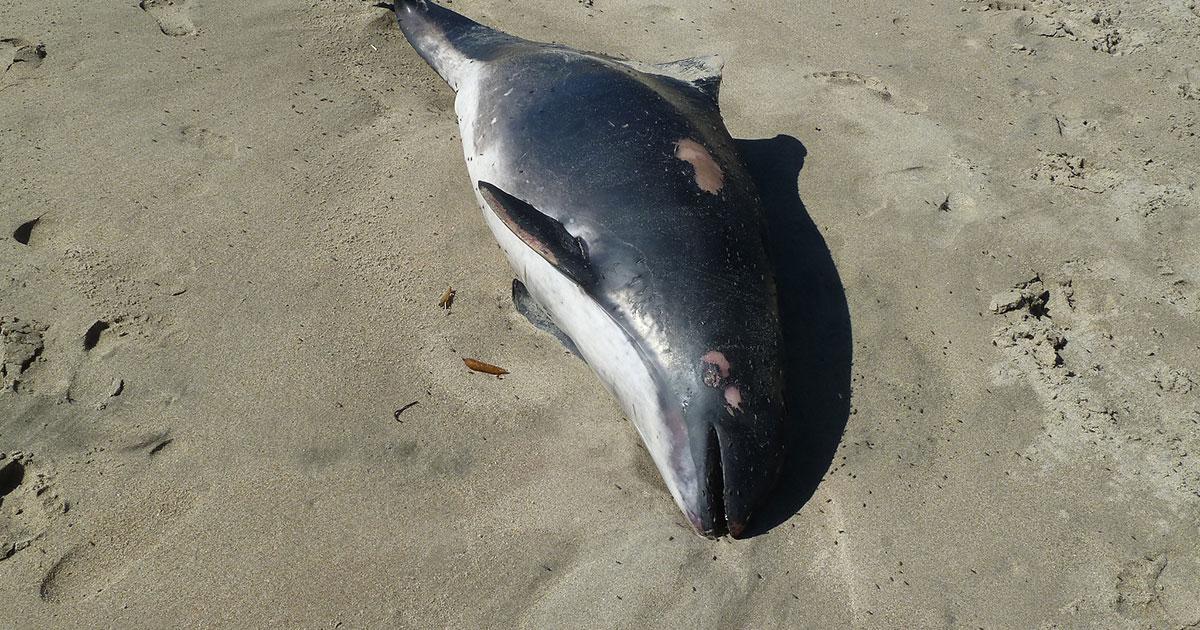Plastic pollution has dominated marine based news reports since the release of Blue Planet 2, resulting in calls to ban everything from microbeads to plastic bottles. One of the most concerning constituents are microplastics, tiny fragments which have been found across our oceans from the deep sea to arctic waters. Yet, we still do not know the true impact of these tiny pollutants.
However, a new study published in the journal Scientific Reports by researchers at Plymouth Marine Laboratory and the University of Exeter has found microplastics in the digestive tract of ten species of marine mammal found in UK waters. It is the first of its kind to investigate a wide range of marine mammals while also maintaining strict contamination controls.
Of the 50 stranded creatures studied, all were found to have microplastics within their stomach. Species ranged from Harbor porpoise and Grey seals to Short-beaked common dolphins and a Pygmy sperm whale.
Their findings show that more microplastics were found in the stomach of the animals than the intestines, indicating that microplastics may be retained here. However, the low average of 5.5 microplastics per animal has led researchers to believe these particles are transitory and pass through the digestive system eventually.
Overall, 84 percent of these microplastics were fibres, showing the potential impact of our fast fashion industries. Nylon, a synthetic polymer used for clothing, was found to be the most prevalent type of fiber, making up 60 percent of the total fibers found during the study.
A possible relationship between microplastic abundance and cause of death was also found. With a higher accumulation of microplastic being found in animals that had died due to infectious diseases, than other causes of mortality. More research is needed into the potential chronic effects of exposure and the chemical contaminants that can exist on microplastic, such as polychlorinated biphenyl (PCB).
Speaking on the study, lead scientist Sarah Nelms, of the University of Exeter and Plymouth Marine Laboratory, said “It’s shocking – but not surprising – that every animal had ingested microplastics”
Dr Penelope Lindeque, head of the Marine Plastics research group at Plymouth Marine Laboratory, said: “This study provides more evidence that we all need to help reduce the amount of plastic waste released to our seas and maintain clean, healthy and productive oceans for future generations.”
British waters are home to 26 species of marine mammals, some of which are migratory species and could be affected by higher accumulations of microplastics in areas of aggregation. Although an important finding, researchers conclude that more research is needed on a greater variety of marine mammals that feed in different ways and that live in various locations. Story by Caitlin Taylor-Robinson
Journal Reference:
Nelms SE, Barnett J, Brownlow A, Davison NJ, Deaville R, Galloway TS, Lindeque PK, Santillo D, Godley BJ (2019). Microplastics in marine mammals stranded around the British coast: ubiquitous but transitory? Nature scientific reports. 9:1075. DOI: https://doi.org/10.1038/s41598-018-37428-3
Samples utilized in this study were collected as part of work carried out through the collaborative UK Cetacean Strandings Investigation Programme, which is co-funded by Defra and the Devolved Governments in Scotland and Wales. S.N. was funded by the Natural Environment Research Council [NE/L002434/1]. P.L. and T.G. acknowledge funding from the Natural Environment Research Council discovery grant (NE/L003988/1 and NE/L007010). This study was approved by the University of Exeter Ethics Committees (2017/1741).



